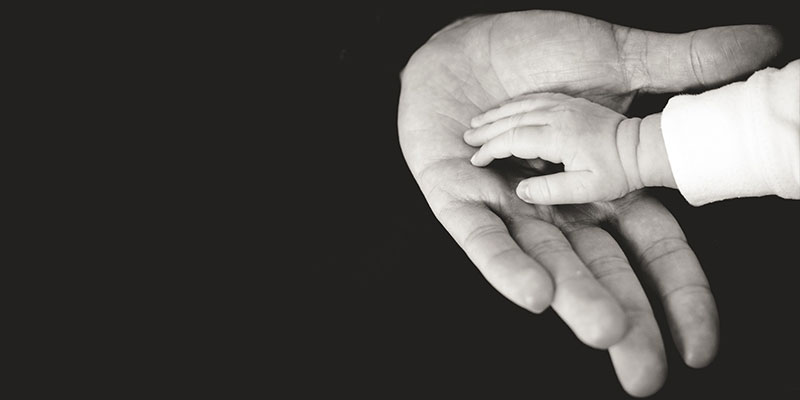Every June, families around the world pause to honour the guiding hands, strong shoulders, and quiet sacrifices of fathers. While Mother’s Day has long had its place on the calendar, Father’s Day is a more recent addition — and one with a story as heartfelt as it is fascinating.
But where did it all begin? And why does this particular day mean so much, not just in one country, but around the world? Let’s explore the origins and significance of Father’s Day — a celebration of fatherhood that continues to evolve, generation after generation.
What is the History of Father’s Day
When it was proposed, Father’s Day was not immediately accepted, and it was not recognized in the U.S. until 1972 during the administration of President Richard Nixon. did not become a national holiday.
Reportedly, Father’s Day was first proposed in the USA by Sonora Smart Dodd. She and her five siblings were raised by their father – Civil War veteran William Jackson Smart. Keeping in mind his father’s love and devotion to the family, he requested a day dedicated to the father on the same lines as Mother’s Day. The day was finally celebrated on the third Sunday of June. 19 June 1910 was celebrated as first Father’s Day. Later in 1972, US President Richard Nixon declared Father’s Day a national holiday.
How Did Father’s Day Originate in Different Parts of the World
Father’s Day might feel like a modern invention, but its roots and meanings vary across cultures. While the core idea — honouring fathers — remains constant, how and when it’s celebrated changes from place to place. Here’s a quick look at how Father’s Day began in different corners of the world.
United States
Father’s Day began in 1910, thanks to Sonora Smart Dodd, who wanted to honour her father, a single parent of six. It became a national holiday in 1972. The US celebration heavily influenced other countries to adopt the tradition.
United Kingdom
Father’s Day in the UK follows the American date — the third Sunday in June. Although it lacks a specific origin story here, it’s widely celebrated with cards, gifts, and family time. The occasion has grown in popularity over the last few decades.
India
Although not a traditional holiday, Father’s Day has gained popularity due to global influence. It’s celebrated on the third Sunday of June, especially in urban areas. Children express their love with gifts, cards, and special outings.
Germany
Known as Vatertag, it is celebrated on Ascension Day, which falls 40 days after Easter. Traditionally, men embark on hikes and indulge in beer and food with friends. It’s a mix of religious significance and light-hearted revelry.
Thailand
Celebrated on December 5th, the birthday of the late King Bhumibol Adulyadej. It’s a national holiday marked by wearing yellow clothing and the giving of cannabis flowers. The day honours both the King and fatherhood in general.
Mexico
Father’s Day, or Día del Padre, is observed on the third Sunday of June. Families often attend church, share meals, and children give handmade gifts to one another. It’s a day full of warmth, gratitude, and generational bonding.
Brazil
Celebrated on the second Sunday of August to honour St. Joachim, the patron saint of fathers. The day includes church services, big family lunches, and expressions of appreciation. It’s one of the most important family days in Brazil.
Australia
Father’s Day is celebrated on the first Sunday of September. Though the reason for the different date isn’t entirely clear, the celebrations are similar — gifts, cards, and quality time. Schools often host Father’s Day events in advance.
China
Father’s Day is celebrated on the third Sunday in June, not widely observed but is growing in popularity. In Chinese tradition, filial piety is highly valued, making the day a fitting alignment with cultural values. Younger generations often use the day to express gratitude to their fathers.
South Africa
Falling on the third Sunday of June, Father’s Day is celebrated with gifts, barbecues (braais), and quality time. It’s a day to recognise the vital role fathers play in family and community life. Schools and media also highlight positive father figures.
Why Father’s Day Matters Around the World
Beyond the gifts and breakfast in bed, Father’s Day serves a deeper purpose. Here’s why it holds meaning across cultures:
- It celebrates diverse father figures: From biological dads to stepfathers, grandfathers, and mentors — the day recognises all forms of fatherhood.
- It gives voice to gratitude: In many cultures, especially where emotions are kept close, it’s a rare chance to say “thank you.”
- It reflects changing family roles: Today’s fathers are more involved in childcare and household life, and Father’s Day reflects this evolving role.
- It strengthens family bonds: A shared meal, a small gift, or simply spending time together builds connection across generations.
- It brings cultural unity: Though customs differ, the heart of the celebration — love and appreciation — is universal.
A Day to Say Thank You!
Whether it’s with a card, a cooked breakfast, or simply a heartfelt conversation, Father’s Day is a reminder that love doesn’t always need grand gestures — sometimes, it just needs to be spoken aloud.
So, wherever you are in the world, and however you choose to mark it, Father’s Day offers a simple but powerful message: thank you, Dad, for everything!





